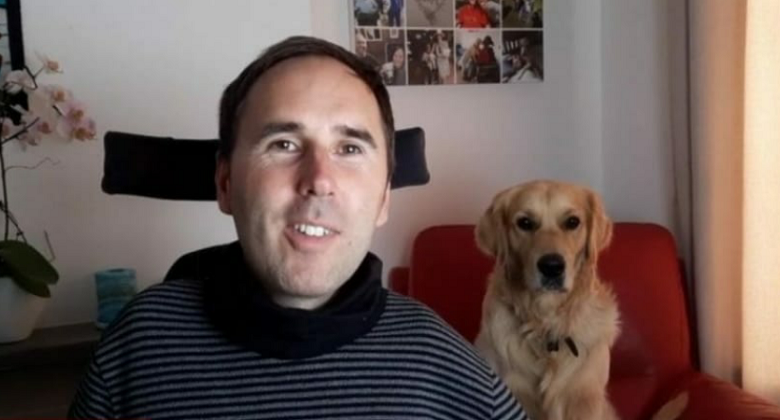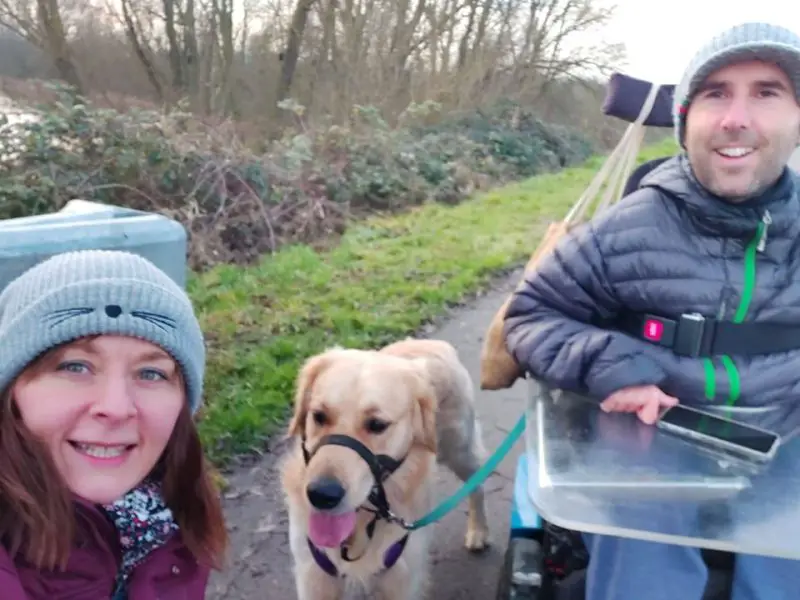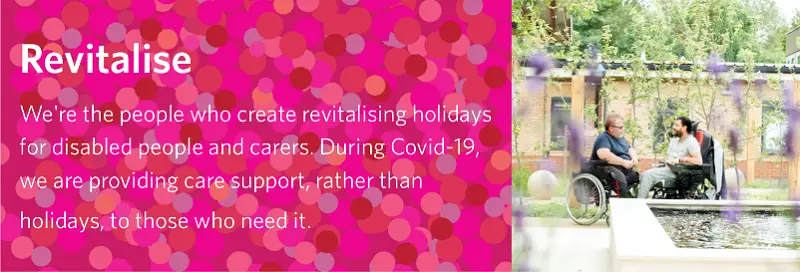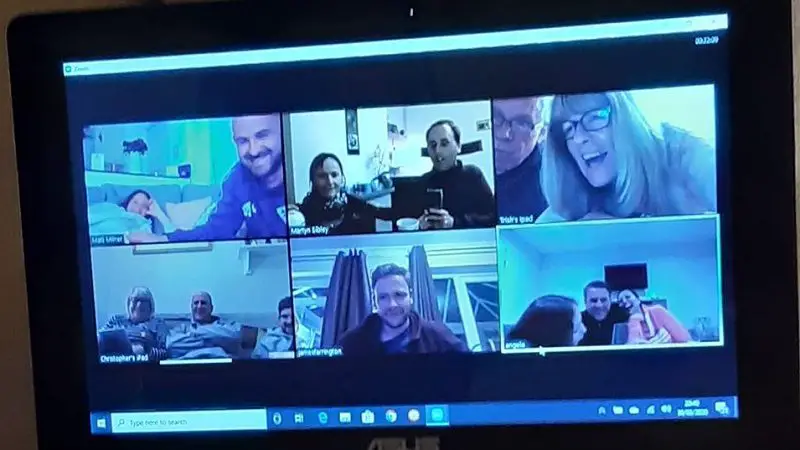
How disabled people can maintain care support during the coronavirus pandemic
The biggest challenge many disabled people are facing during this coronavirus pandemic is being able to continue with the same level of support they need to continue their daily lives. Our co-founder, Martyn Sibley, shares his own experiences of receiving care during self-isolation, what measures he is taking to keep both himself and his personal assistants safe, and what options there are available.
Having been disabled since birth, I’ve always needed personal assistants (PAs) to carry out all physical tasks throughout the day and night. These include showering, dressing, turning at night, cooking, cleaning and anything else required.
I need this support 24 hours a day, 7 days a week, 365 a days a year. Therefore, my PAs and thousands of others across the UK have to continue providing care for disabled people during the coronavirus pandemic.
However, if a PA was to present symptoms or be diagnosed with Covid-19, that PA would not only be unable to carry on giving support, but would also risk passing it onto their clients.
As a result, there is fear that many disabled people will be neglected without vital support unless emergency measures are put in place.
For me, if my PA was to fall ill and I had no back-up, I would be stuck in bed, unable to eat, drink or go to the toilet. It’s absolutely that simple.
Coronavirus and care
I live in my own accessible home in Cambridgeshire with my fiancée Kasia and dog Sunny. I have a care budget known as Direct Payments, which allows me to hire and train my own team of personal assistants.

So far, the majority of disabled people, including myself, have been in self-isolation for three weeks or more.
I normally have a team of four or five people who work with me on an ad-hoc basis. But because most of my PAs are either going out for daily walks or essentials, or live with keyworkers who are coming into contact with lots of people, I’ve stopped using them as a safety precaution.
I currently have just one main personal assistant supporting me with my care. Thankfully, she is not going out other than to see me, so hopefully she won’t get infected. A lot of other disabled people I know are doing something similar.
If my main PA was to catch the virus, I could potentially ask my other PAs to become my back-up support, but that would put me at a higher risk of getting Covid-19.
Another possible solution would be to recruit a new back-up PA in advance using PA services, such as PA Pool or Supercarers. But this will involve a lot of work, as Baroness Jane Cambell explained in an interview she recently did with the BBC:
“We are employers, and we have to put in place our own safety mechanism. If you are on a ventilator – and there are lots of us – that takes two months of training, so what’s going to happen?”
I would also have to be careful about who I selected depending on their circumstances outside of assisting me and the potential risk of getting the virus.
Another option is staying somewhere that provides care. Charity Revitalise is opening up one of its centres, which normally offers accessible holidays, to disabled people in self-isolation.
It will provide all care support and food for as long as needed, so you wouldn’t have to worry or even think about care or essentials.
It will provide all care support and food for as long as needed at a discounted cost, so you wouldn’t have to worry or even think about care or essentials. It has also secured funding from the Garfield Weston Foundation to help pay for a stay.

Care funding during the Covid-19 outbreak
Aside from the practicalities with care, the greatest concern many disabled people have is that the UK Government is overlooking the importance of care.
There is a risk that it will allow local councils to declare themselves in a state of emergency and cut, or even stop, the funding for thousands of disabled people.
It is important that local authorities remember that every disabled persons’ needs are different and therefore the necessity of care and the amount of care required differs between each person.
Local authorities that provide Direct Payments and Continuing Healthcare budgets should be communicating and supporting clients.
Councils should be offering advice on what to do if a carer catches the virus or needs to self-isolate. But from what I have heard from other disabled people, some councils are doing this better than others.
If you decide to opt for a stay at Revitalise, it can help with funding through the Joan Brander Memorial Fund, set up in honour of the Revitalise founder, or the Revitalise Support Fund.
Share your tips and experiences with managing your care during self-isolation by tweeting @DHorizons or commenting on Facebook using the hashtag #CovidCarePlan.
PPE equipment to protect against Covid-19
The government has advised that all care staff should wear Personal Protection Equipment (PPE), such as gloves, aprons and masks, if someone has symptoms of Covid-19.
But, as daily care involves close contact, many disabled people are trying to acquire PPE for their PAs as an extra layer of protection.
However, many people within the disability community are struggling to access Personal Protection Equipment (PPE) – it’s either unavailable or extremely expensive.
We should also be able to pay for it out of our Direct Payments, but in order to do this, some would need additional funding.
Visit the Disability Horizons Shop to buy PPE for yourself or carers.
Coronavirus and mental health
With all this uncertainty and confusion surrounding Covid-19, it is bound to be impacting on people’s mental health and wellbeing. At times I’ve felt stressed, anxious and fearful.
But I’ve learnt that the best way to overcome these negative thoughts is to limit myself to only consuming relevant news on TV, radio and online.
Instead, I try and find fun activities to occupy and amuse myself during self-isolation. For instance, I’ve been going on daily walks with Sunny, enjoying virtual quizzes with my family, watching films and drawing using an app I downloaded.

At Revitalise, although it’s not running excursions or hosting entertainment, its staff aim to still create an uplifting and energised vibe.
Overall, the important thing is to stay safe and be sensible. Make sure carers and PAs wash their hands regularly, clean surfaces and handles thoroughly and do not socialise with other people.
If you and your support team stick to these simple measures, the risk of catching the virus is hopefully minimised and you can continue to receive the care you need.
Most importantly, trust everything will be OK and that the Covid-19 crisis will pass.
This article was sponsored by Revitalise, a charity that has accessible holiday centres across the UK, offering fully catered breaks for disabled people and their families.
During the coronavirus outbreak in the UK, Revitalise is offering discounted stays to disabled people so that all care and food is taken care of.
By Martyn Sibley with Revitalise
Tell us about your experiences with self-isolation. How are you managing your care? Have you been able to buy personal protective equipment? Are you having issues with funding? Share your tips and experiences on Twitter @DHorizons or Facebook using the hashtag #CovidCarePlan.
Originally posted on 08/04/2020 @ 12:01 am